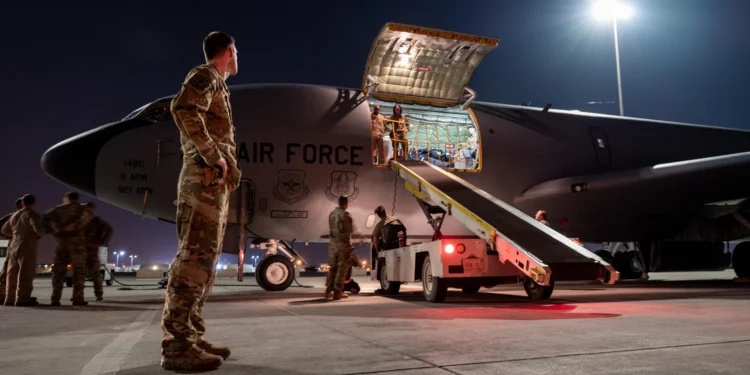The U.S. has announced that it will not alter its policy on arms transfers to Israel, despite the ongoing and worsening humanitarian crisis in Gaza. This statement reflects the U.S.’s continued support for Israel’s right to self-defense, even as international pressure grows over the humanitarian impact of the conflict. The decision has drawn criticism from various global leaders and human rights organizations, calling for a halt to the arms shipments and increased efforts to address the suffering of civilians in Gaza. The U.S. government maintains that its stance is based on its long-standing strategic partnership with Israel and its commitment to ensuring Israel’s security.
A Longstanding Alliance: U.S. Support for Israel
For decades, the U.S. and Israel have maintained a close strategic partnership. The United States has consistently supported Israel in its right to defend itself against threats, including military assistance and arms transfers. In the context of the ongoing conflict, the U.S. government insists that its decision to continue arms shipments is rooted in this commitment to Israeli security.
Gaza Crisis: Humanitarian Challenges Remain Dire
The humanitarian situation in Gaza has reached alarming levels, with thousands of civilians dead, injured, or displaced due to the conflict. The region is facing shortages of food, water, and medical supplies, while the infrastructure has been devastated by airstrikes. In the face of this disaster, humanitarian organizations are calling for more substantial action from the international community, including the U.S.
While the U.S. has expressed support for increasing humanitarian aid to Gaza, critics argue that this is insufficient in light of the ongoing violence. Human rights organizations have repeatedly called for a ceasefire to allow for the unhindered delivery of aid and the protection of civilian lives. However, the U.S. has refused to impose any restrictions on its arms sales to Israel, arguing that Israel’s right to self-defense must not be compromised.
Is the U.S. Policy Contributing to the Humanitarian Crisis?
The U.S. government’s position has sparked a broader debate about the role of military support in exacerbating or mitigating humanitarian crises. Some critics argue that the continued flow of arms to Israel is fueling the conflict and prolonging the suffering of civilians in Gaza. They contend that a shift in U.S. policy could help pressure Israel to de-escalate and prioritize humanitarian concerns.
On the other hand, proponents of U.S. support for Israel argue that any restrictions on arms transfers would undermine Israel’s security and potentially embolden militant groups operating in Gaza. They emphasize that Israel’s defense needs must remain a priority, especially in the face of threats from Hamas and other factions.
The Future of U.S.-Israel Relations
As the conflict in Gaza continues to rage, the U.S.’s relationship with Israel will remain under intense scrutiny. The administration’s unwavering support for Israel’s military actions could have long-term implications for U.S. foreign policy, particularly in the Middle East. International pressure is mounting for the U.S. to take a more balanced approach, one that addresses both Israel’s security concerns and the humanitarian crisis in Gaza.
As the situation evolves, the question remains: will the U.S. reconsider its position in response to mounting global pressure, or will it continue to prioritize its alliance with Israel above all else?
Related Stories:
Spain Blocks US Ships Suspected of Carrying Weapons to Israel
UK suspends some arms exports to Israel over humanitarian concerns
Biden Approves Limited Use of US Arms by Ukraine for Strikes Inside Russia
















